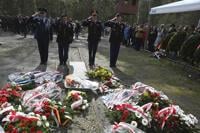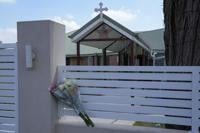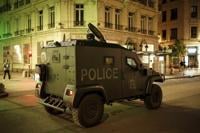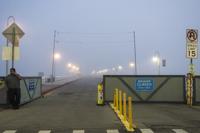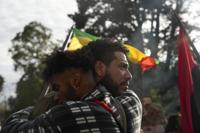WARSAW, Poland (AP) — Observances were held in Poland on Sunday to mark the 80th anniversary of the “Great Escape,” an ingenious act of defiance during World War II in which 76 prisoners of war tunneled out of a German prisoner-of-war camp into a snowy forest.
British soldiers carried photos of pilots murdered on Hitler’s orders at a ceremony that was also attended by the British ambassador to Poland and marked the culmination of observances that lasted all weekend.
During World War II, the Nazi POW camp held captured Allied air force personnel, including British, American and Polish soldiers among others, and British airmen led the escape effort. At the time the area was part of Germany but now lies in western Poland.
The ceremony Sunday also included a Hercules C-130 transport aircraft and four F-16 fighters of the Polish Air Force flying over the town of Żagań and the ceremony site, according to Polish media reports.
Most of the soldiers who escaped from Stalag Luft III on the night of March 24, 1944, faced a tragic end. Only three made it to safety. The others were recaptured and 50 of them were executed.
Though it largely failed it came to be known as the “Great Escape,” and was celebrated in a 1963 film starring Steve McQueen that was highly fictionalized.
More recently the escape was featured in an episode of the American war drama miniseries "Masters of the Air" on Apple TV+.
at the U.K. ��ɫֱ�� Archives in London also pays tribute to the escapees.
The prisoners spent a year secretly digging three tunnels named Tom, Dick and Harry. The Germans discovered the first tunnel but the other two remained.
The plan was to get 200 men out through tunnel Harry, but on the night of the escape, the first man who emerged realized the tunnel did not extend as far beyond the wire as they had anticipated. Only 76 made it out before a guard noticed footprints in the snow.
Three men — two Norwegian pilots and a Dutch one— were the only ones who successfully escaped.
Adolf Hitler was so incensed by the escape that he ordered the 73 recaptured men executed, and the Nazis eventually settled on killing 50 — all in violation of the Geneva Conventions on the treatment of war prisoners.
After the war, the murders of the allied airmen were part of the Nuremberg trials and several Gestapo officers were sentenced to death.


